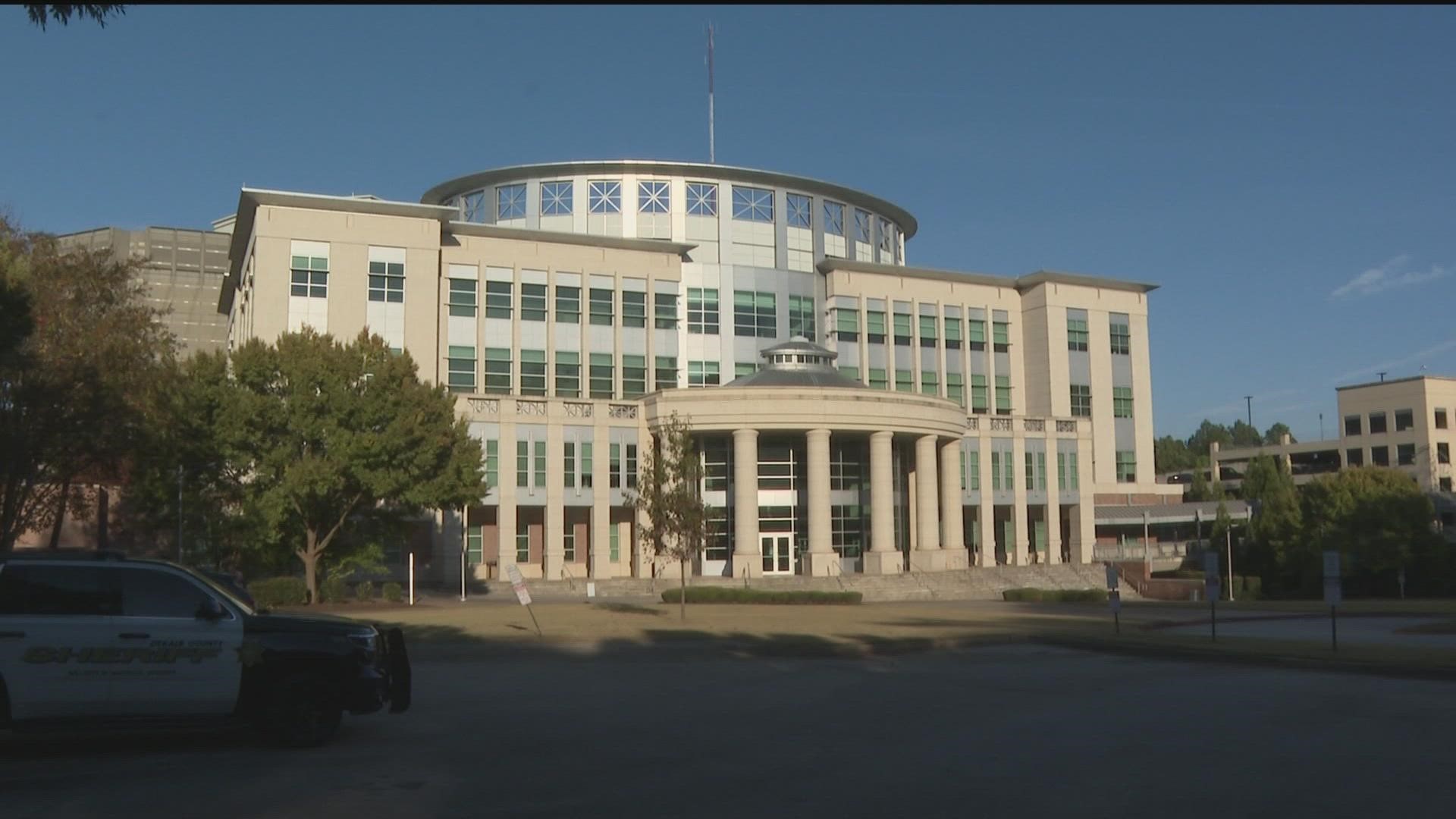DEKALB COUNTY, Ga. — Those working in law enforcement and crime prevention advocates have the same goal: to reduce crime among juveniles. Leaders in DeKalb County said they had noticed an uptick in violent crime specifically.
Those under 18 who get into trouble with the law in DeKalb County typically come to the Juvenile Justice Center. A'Sheika Penn, Deputy Chief Assistant District Attorney of Dekalb County's Juvenile Division, said the juvenile justice system is similar to the adult equivalent in that it aims to provide accountability for violations of the law. She said at the juvenile level, there's more of a focus to provide treatment and rehabilitation rather than punish kids and teens.
“Juvenile court is not just this place where kids get lost in," Penn said. "But it has a lot of positive elements to it too.”
Juvenile court deals with dependency cases and delinquency cases, along with designated felonies and the more serious SB440 cases.
RELATED: 5 more arrested, including 4 juveniles in connection to Arbor Place Mall brawls, police say
Data from the Georgia Department of Corrections shows more than 3,000 boys ages 10-21 statewide were arrested and placed in a regional youth detention center in FY2021. The numbers are closer to 900 for girls ages 11-19. That does not count the number of kids and teens who were arrested and released. It comes as Georgia lost nearly 200 juvenile correctional officers from July 2020 to July 2021, according to state data.
"I don't think we humanize juveniles," Penn said. "I also think we attribute adult behavior to juveniles. So sometimes, we have to take a step back and pay attention to what's going on with them."
Penn called the COVID-19 pandemic "the great equalizer" when it came to kids committing more crimes. Andre Deas, the president of 100 Black Men of DeKalb, attributed a perceived uptick in crime among kids to emotional issues exacerbated by the pandemic and a lack of parenting.
“We’re getting referrals through the juvenile justice center, whether it’s probation officers, social workers through the school system, or case workers to bring them to our Leadership Academy," Deas said. “Once you get into a little bit of trouble, it can add up to some of the bigger issues we’ve been seeing.”
Deas said his organization has impacted close to 1,000 people, and the 100 Black Men Leadership Academy currently had more than 120 kids enrolled in the mentoring program. It teaches teens conflict resolution and keeps them connected to key resources throughout the school year.
"Baby steps, but hopefully with all the resources, the sheriff’s department, the police department, the county commissioners and the school district, I think we can get to a point where we can get bigger ground on this piece," Deas said.
Deas said solutions to curbing crime start with understanding. For kids and teens, that means realizing the stakes could be life and death. For adults, Deas said, it can come down to meeting a need.
"The times of us talking at young people is over," Deas said. "I think we really need to hear them and see what they are facing.”
Juvenile justice systems across metro Atlanta offer classes in anger management, interacting with law enforcement, robotics and more. To learn more, click here.

